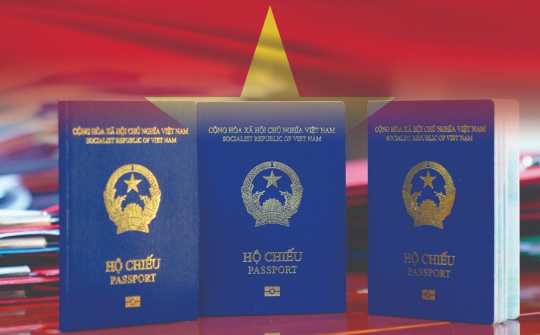
The database of fraudulent websites maintained by the Information Security Authority now includes 125,338 fake URLs. Photo: Trong Dat.
The Information Security Authority (Ministry of Information and Communications) has issued a new warning regarding 'black credit' loan scams, one of the top three online fraud schemes currently affecting Vietnam’s digital space. These scams, often carried out through social media, are increasingly preying on vulnerable individuals seeking loans.
As of the end of September 2024, the Information Security Authority recorded 125,338 fraudulent websites used to impersonate organizations and agencies for the purpose of scamming victims. These fake sites not only cause financial losses to victims but also damage the reputations of the organizations they mimic.
In the first nine months of 2024 alone, the Information Security Authority’s technical systems received more than 22,200 reports from Vietnamese internet users about online scams.
Alongside technical measures, the Ministry of Information and Communications emphasizes raising public awareness as a key strategy in combating online fraud. To support this effort, the Information Security Authority has been publishing a weekly series titled "Weekly Fraud Reports" to keep the public informed about ongoing online scams.
Pyramid scheme investment scams
The Information Security Authority has also flagged unauthorized multi-level marketing schemes, especially in the form of stock and cryptocurrency investments, such as those promoted by Skyway.
Skyway claims to be an international transportation technology company based in Belarus. However, it operates through unauthorized capital mobilization schemes in Vietnam, where members recruit others into the system in exchange for commissions. Skyway is not licensed for multi-level marketing in Vietnam, and its operations are suspected of violating the law.
Authorities warn people to be cautious about promises of unusually high returns on investments and to verify the legal status of companies before participating in any financial schemes. Consulting with trusted experts is advised, and individuals who suspect fraud should immediately report it to relevant authorities.
Online loan scams targeting Vietnamese citizens
Recently, there has been a surge in loan scams carried out online, with fraudsters impersonating bank officials to steal funds. Scammers advertise “easy” loans with quick disbursement processes on social media, luring people into their trap.
For example, a woman in Cau Giay District, Hanoi, recently fell victim to such a scam and lost nearly 400 million VND while seeking a loan online.
The common method involves scammers posing as employees of financial companies or banks to gain trust. They then ask victims to transfer deposits or pay upfront fees.
These scammers promise fast loans with no need for asset verification or credit checks. Once the victim registers for a loan, they are required to pay service fees or other charges in advance, at which point the scammer disappears with the money.
In some cases, scammers ask victims to download fake loan apps designed to steal personal information, such as bank account details or credit card information. Victims not only fail to receive any loan but also risk having their sensitive information stolen.
The Information Security Authority urges citizens to avoid non-reputable loan advertisements on social media and only borrow from licensed, trustworthy financial institutions. Users should also refrain from sharing personal or financial information, such as bank account numbers and passwords, on suspicious websites or apps.
Electricity bill fraud
In another widespread scam, fraudsters impersonate electricity company employees and demand customers pay for alleged overdue bills. These scammers often call unsuspecting individuals, claiming that large unpaid electricity bills will result in immediate service disconnection unless they make a quick payment.
Scammers may also send fake emails or text messages with bogus links or apps, prompting victims to enter their personal or financial details.
The Information Security Authority advises citizens to verify any suspicious calls or messages by directly contacting official electricity providers through their official channels. People should never transfer money to personal accounts or provide banking information to unverified sources./.
BT





